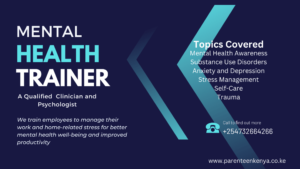They are portrayed as a generation disconnected from the real world, buried under the weight of their smartphones, and online personas.
Now, they are the same people joining the workforce.
As a team leader or manager, you may have noticed that Gen Z disrupt office norms with their unapologetic demands for inclusivity, flexibility, and purpose.
Born between 1997 and 2012, Gen Z is the most diverse generation to date. They expect workplaces to embrace individuality and reject outdated traditions. For instance, they have the following expectations as they join the workforce:
- Remote work options
- Less rigid scheduling
- Time for non-work passions
- More technological use
Gen Zers are boldly speaking up to shape workplace culture to match their progressive, socially-conscious values, and desires. In the next section, we will discuss the various ways Gen Z demands changes at work.
Embracing Individuality and Self-Expression
A defining feature of Gen Z is their unapologetic push for self-expression and individuality in the workplace.
Having grown up with social media, this generation is used to putting themselves out there. As your employees, Gen Zer's expect to be able to show up as their authentic selves at work, beyond just the 9-to-5 persona.
The Gen Zer's you lead aren't shy about criticizing office policies around everything from rigid office hours, strict top-down leadership, traditional email communication, and lack of mental health well-being provisions.
Beyond policy, Gen Z also champions self-expression through flexible dress codes and styles. They expect workplaces to accommodate alternative hairstyles, visible tattoos, casual wear, and more.
Their attitude is—I can still be professional and do good work while dressing in a way that lets my personality shine.
Sounds familiar?
This outspoken Gen Z attitude around individuality aims to make professional settings more inclusive and authentic.
Companies hoping to attract and retain Gen Z talent would do well to rethink any outdated policies stifling self-expression.
Demanding Flexibility and Work-Life Balance
You may have gotten used to the rigid 9-to-5 office job norms and are okay with it.But the Gen Zers joining your company are disrupting the status quo by demanding flexibility and work-life balance from employers.
Why?
After interacting for years with technology that allows on-demand access to entertainment and information, Gen Z expects their careers to be flexible as well.
They are seeking positions that offer varied start and end times and the ability to mold schedules around their lives.
Expect to be questioned about strict in-office requirements and asked for options to work remotely at least a few days a week.
For Gen Z, work is a part of life but not the sole focus. They aim to accommodate passions outside of work and reject living to work. Gen Z workers will proactively negotiate for amenities like:
- Unlimited vacation time
- Extended parental leave
- Sabbaticals
- Other benefits aimed at sustaining a rich life beyond the job
If your company wants to attract and retain Gen Z, the leadership may need to rethink limited paid time off policies, strict presenteeism, and hourly clocks on productivity.
While this move may require uncomfortable adjustments, the payoffs in engagement and retention may outweigh any short-term growing pains.
Related: 6 Daring Ways Managers Can Enhance Employee Mental Health
Leveraging Technology and Digital Skills

As digital natives, Generation Z brings technology expertise and an innovative mindset into the workplace.
They expect tools and systems optimized for efficiency, collaboration, and engagement.
If you allow your team to work remotely on some days, Gen Zers prefer using digital tools like Slack, Asana, Monday.com, and Figma.
These online options allow effortless communication and collaboration across locations. The following table illustrates how these tools improve overall productivity.
| Tool | How It Improves Productivity |
| Slack | - Enables quick communication and collaboration across teams - Reduces need for time-consuming email threads and meetings - Allows employees to efficiently share updates and ideas in real-time |
| Asana | - Provides transparency into team projects and tasks - Allows managers to assign and track work - Enables teams to collaborate and visualize workflows |
| Monday.com | - Gives managers insight into team workloads and progress - Allows teams to track project schedules and deadlines - Automates repetitive status updates |
| Figma | - Allows multiple designers to collaborate on design files in real-time - Reduces time spent on handoffs and approvals - Provides helpful design project management features |
Gen Z also maximizes productivity by identifying traditional workflows that can be digitized and automated.
For example, they may advocate shifting from error-prone manual data entry to using AI and APIs to extract insights faster.
Overall, Gen Z sees technology as a way to eliminate tedious work, freeing them up for more strategic initiatives. They expect you to provide training and access to the latest workplace tech tools needed to excel.
While their intuitive use of technology can create knowledge gaps with your older employees, Gen Zer's bring energy and digital skills essential for organizations to innovate.
Seeking Meaning and Purpose in Work

More than just chasing paychecks and prestige, Generation Z seeks meaningful work aligned with their values and goals.
Raised in an era of growing activism and social awareness, Gen Z expects you, as the employer, to provide opportunities to make a positive impact in society.
In one survey by EY, 95% of Gen Z respondents want to use their talents to benefit the greater good. This desire manifests through Gen Z gravitating toward roles focused on sustainability, equity, and ethics.
Additionally, Gen Z tends to reject status symbols like corner offices or executive titles that previous generations coveted. They care more about purposeful work than status or climbing the ladder quickly.
Employers who can't communicate a larger socially conscious vision struggle to engage and retain Gen Z talent.
Your Gen Z employees want their day-to-day work aligned with their personal values. Whether around diversity, environmentalism, transparency, or other causes, they seek congruence between who they are and what they do for work. They will question or leave roles that clash with their principles.
For example, Toria is a 22-year-old recent college graduate who started an entry-level position at a digital marketing agency. She considers herself an environmentalist and wants to use her career to positively impact sustainability causes.
However, Toria soon realizes much of the agency's work supports fast fashion and disposable consumer brands—industries she sees as unethical for the environment.
Even though the job aligns with her marketing skills, she feels uncomfortable promoting brands that don't share her values around sustainability.
Toria decides to advocate for change within the agency. She presents research showing how Gen Z consumers prefer sustainable brands. S
he proposes the agency adjust its client focus and offer green marketing services to eco-conscious companies. This would allow her to utilize her digital marketing skills for clients she feels good about.

Prioritizing Diversity, Equity, and Inclusion
Promoting diversity, equity, and inclusion (DEI) is a top priority for Gen Z entering the workforce.As the most ethnically and racially diverse generation, they expect to see workplaces that reflect the world around them.
Gen Zer's are driving more inclusive hiring by advocating for employers to focus less on formal education qualifications like degrees. They argue that many skills can be acquired through practical experience, online courses, and self-learning.
They further state that when you eliminate strict degree requirements, employers can consider a broader range of candidates, including those who may not have had access to higher education but possess valuable skills.
Gen Z frequently calls out inequities they observe around compensation, career advancement, or treatment of certain groups.
Overall, Gen Z refuses to accept the gaps and inequities of previous eras as the status quo. They expect and demand that diversity, equity, and inclusion be part of the organizational culture—not just held as values.
Will You Resist or Welcome the Change?
As Generation Z transforms workplace culture with bold preferences, companies face a choice—resist or welcome the change.Organizations can choose to ignore Gen Z's demands and risk stunting diversity, innovation, and engagement.
Or, companies can embrace Gen Z values around flexibility, equity, and purpose and attract top young talent.
The companies that openly welcome Gen Z priorities, not resist them, will become destinations for the next generation’s brightest minds. The most forward-thinking leaders will view these shifts as progress, not problems.
Are you ready to welcome the change? Let Mental Health Wellness Kenya help you make the bold move by training your employees about the inevitable changes. You will cater to everyone's mental health well-being. Contact us today.


